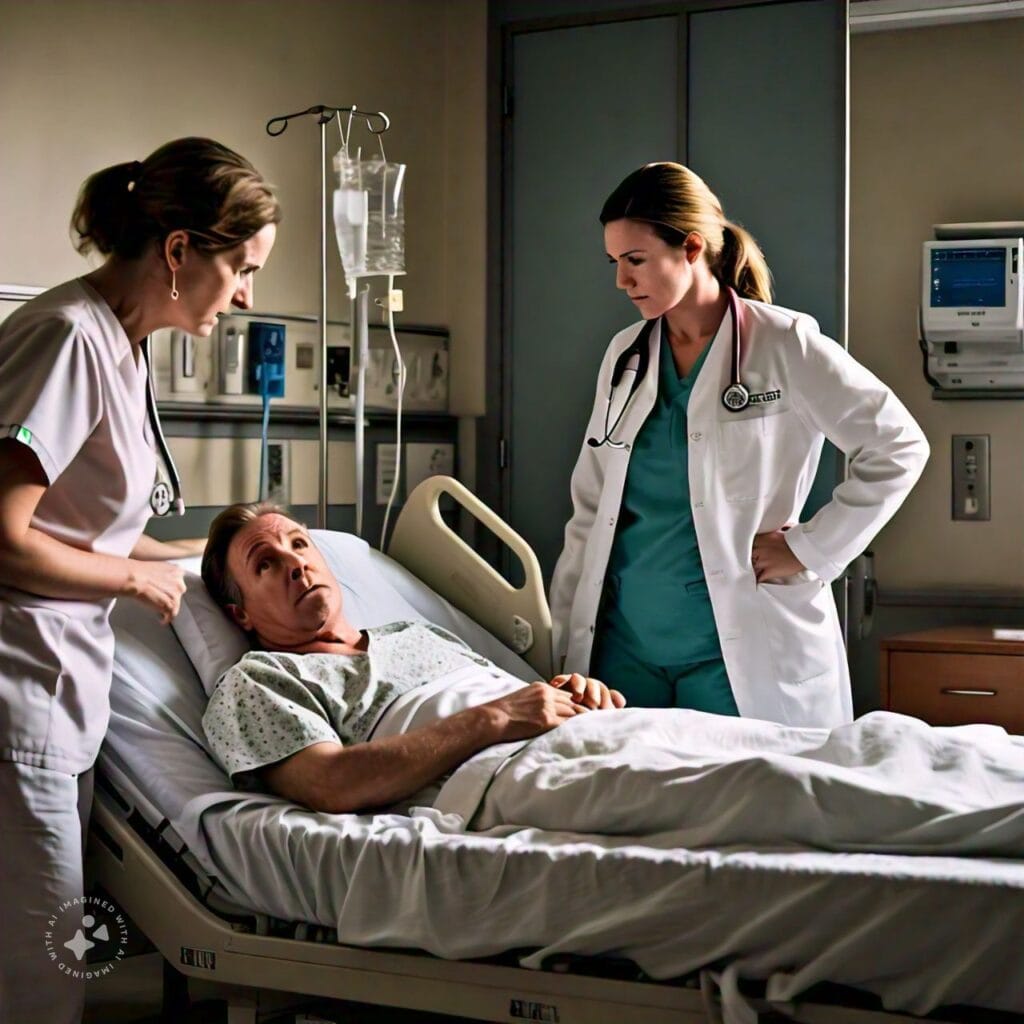Introduction
An article “High Blood Pressure and Symptoms What You Need to Know” helps us to knowing that High blood pressure, also known as hypertension, is a health condition that silently affects millions of people around the globe. It’s often dubbed the “silent killer” because most people don’t realize they have it until serious complications arise, such as heart attacks, strokes, or kidney failure. Understanding the symptoms of high blood pressure is critical for early detection and effective management.
While hypertension doesn’t always present noticeable symptoms, it can manifest through various physical signals, some of which can be subtle and easily overlooked. This article “High Blood Pressure and Symptoms What You Need to Know” explores the various symptoms of high blood pressure and addresses frequently asked questions to help you better recognize and manage this condition.
What is High Blood Pressure?
High Blood Pressure and Symptoms What You Need to Know
High blood pressure refers to the force of blood pushing against the walls of the arteries as the heart pumps. Over time, consistently high pressure can cause damage to the heart and blood vessels, increasing the risk of heart disease, stroke, and other health issues.
A blood pressure reading consists of two numbers:
- Systolic pressure (the top number): Indicates how much pressure your blood is exerting against artery walls when the heart beats.
- Diastolic pressure (the bottom number): Shows the pressure in the arteries between heartbeats when the heart is at rest.
A normal blood pressure level is usually around 120/80 mmHg. High blood pressure is diagnosed when readings remain above 130/80 mmHg over time.
Why High Blood Pressure is Dangerous
High Blood Pressure and Symptoms What You Need to Know
Hypertension can cause severe health complications if left untreated, including:
- Heart attack
- Stroke
- Heart failure
- Kidney disease
- Vision loss
Given that hypertension often doesn’t have obvious symptoms, regular blood pressure monitoring and an awareness of possible warning signs are crucial for preventing these life-threatening conditions.

Common Symptoms of High Blood Pressure
High Blood Pressure and Symptoms What You Need to Know
Although high blood pressure is usually asymptomatic, some people may experience certain physical signs that indicate their blood pressure is elevated. It’s essential to take these symptoms seriously, especially if they occur suddenly or are severe.
1. Headaches and High Blood Pressure
This article “High Blood Pressure and Symptoms What You Need to Know” explores One of the most frequently asked questions is whether headaches are a symptom of high blood pressure. While not everyone with hypertension will experience headaches, those who do might notice them when blood pressure rises significantly, often in cases of hypertensive crisis. These headaches are usually described as pulsating and often occur in the morning. If you regularly suffer from severe headaches, especially combined with other symptoms, it’s important to check your blood pressure.
2. Can High Blood Pressure Cause Dizziness?
This article “High Blood Pressure and Symptoms What You Need to Know” explores Dizziness is another symptom sometimes associated with high blood pressure, although it’s more common during a sudden spike in blood pressure rather than in people with chronically high levels. Dizziness could be a sign of a hypertensive crisis or related complications such as stroke. It’s always important to seek medical advice if you experience sudden dizziness alongside elevated blood pressure readings.
3. Vision Problems and High Blood Pressure
This article “High Blood Pressure and Symptoms What You Need to Know” explores Blurred vision or other vision disturbances can occur as a result of high blood pressure. Hypertension can damage the blood vessels in the retina, the light-sensitive part of the eye, leading to hypertensive retinopathy. This condition can cause symptoms like blurry or double vision, and in severe cases, it can result in vision loss. Monitoring your blood pressure and managing it effectively can reduce the risk of such complications.
4. Can Chest Pain be Linked to High Blood Pressure?
This article “High Blood Pressure and Symptoms What You Need to Know” While chest pain is more often a symptom of heart disease, it can also be related to high blood pressure. Hypertension forces the heart to work harder, which may lead to angina (chest pain caused by reduced blood flow to the heart muscle). If you experience chest pain, especially if it’s sudden or severe, you should seek emergency medical care, as it could be a sign of a heart attack or other serious heart condition.
5. Does High Blood Pressure Cause Fatigue?
This article “High Blood Pressure and Symptoms What You Need to Know” Fatigue can be a symptom of long-term high blood pressure, especially if it starts to affect your heart or kidneys. When your heart has to work overtime to pump blood through the body, it can lead to feelings of tiredness and weakness. This is particularly true in cases where hypertension has caused significant damage to the heart muscle or has led to heart failure.
6. Shortness of Breath as a Symptom of High Blood Pressure
This article “High Blood Pressure and Symptoms What You Need to Know” Shortness of breath can develop in people with high blood pressure, particularly if hypertension has led to heart failure or other heart-related issues. The heart struggles to pump blood efficiently, leading to fluid buildup in the lungs, which causes difficulty breathing. If you notice shortness of breath during routine activities, it’s important to have your blood pressure evaluated.
7. Are Nosebleeds Related to High Blood Pressure?
This article “High Blood Pressure and Symptoms What You Need to Know” Nosebleeds are sometimes thought to be a symptom of high blood pressure, but they are not typically associated with it unless blood pressure is extremely elevated. In cases of hypertensive emergencies, where blood pressure rises suddenly and dramatically, blood vessels in the nose may burst, causing a nosebleed. Frequent or unexplained nosebleeds, however, warrant further investigation and should not be ignored.
8. Anxiety or Nervousness from High Blood Pressure
This article “High Blood Pressure and Symptoms What You Need to Know” High blood pressure itself doesn’t usually cause anxiety or nervousness, but living with hypertension or being in a hypertensive crisis can certainly raise stress and anxiety levels. If you have high blood pressure and often feel anxious or on edge, it’s important to learn stress management techniques to help maintain healthier blood pressure levels.
9. Swelling in the Legs or Feet Due to High Blood Pressure
This article “High Blood Pressure and Symptoms What You Need to Know” While swelling in the legs or feet is not a direct symptom of high blood pressure, hypertension can lead to heart failure, which may cause fluid retention and swelling. If you notice persistent swelling, especially in the lower extremities, this could indicate your blood pressure is putting too much strain on your heart, and medical intervention may be necessary.
10. Is High Blood Pressure Asymptomatic?
This article “High Blood Pressure and Symptoms What You Need to Know” In many cases, high blood pressure is completely asymptomatic, which is why it’s often called the “silent killer.” Most people with hypertension won’t experience any symptoms at all, making regular blood pressure checks essential. Even without noticeable symptoms, high blood pressure can still cause severe damage to your organs and lead to long-term health problems if left untreated.
Monitoring and Managing High Blood Pressure Symptoms
High Blood Pressure and Symptoms What You Need to Know
Routine Blood Pressure Checks
Because high blood pressure symptoms can be subtle or nonexistent, regular blood pressure monitoring is crucial. If you have risk factors like a family history of hypertension, obesity, or an unhealthy lifestyle, it’s especially important to check your blood pressure regularly.
Lifestyle Modifications
Managing high blood pressure effectively often involves making lifestyle changes, including:
- Eating a heart-healthy diet rich in fruits, vegetables, whole grains, and low-fat dairy.
- Exercising regularly to strengthen your heart and improve circulation.
- Reducing stress through activities like yoga, meditation, or deep breathing.
- Limiting salt and alcohol intake to lower blood pressure.
Medication
For many people, lifestyle changes alone aren’t enough to control high blood pressure, and medication may be necessary. Blood pressure medications can include diuretics, ACE inhibitors, and beta-blockers, depending on individual needs.
Conclusion
High Blood Pressure and Symptoms What You Need to Know
High blood pressure is a serious condition that often presents no symptoms, making regular monitoring essential for early detection and management. Although some people may experience symptoms like headaches, dizziness, or vision problems, these signs usually only appear in severe cases. By keeping a close eye on your blood pressure and making lifestyle changes, you can effectively manage hypertension and reduce your risk of life-threatening complications.
References
- American Heart Association
- Mayo Clinic: High Blood Pressure Symptoms
- WebMD: High Blood Pressure Symptoms
- Cleveland Clinic: Hypertension Symptoms
- National Heart, Lung, and Blood Institute
FAQs About Symptoms of High Blood Pressure
High Blood Pressure and Symptoms What You Need to Know
- What are the common symptoms of high blood pressure?
Most people with high blood pressure don’t experience noticeable symptoms. However, in rare cases, symptoms like headaches, dizziness, or shortness of breath may occur. - Can high blood pressure cause headaches?
Yes, high blood pressure can cause headaches, particularly if it rises suddenly. These headaches are usually throbbing and can be severe. - Does high blood pressure cause dizziness?
Dizziness can occur during a hypertensive crisis or when blood pressure rises quickly, but it is not a typical symptom in most people with high blood pressure. - Can high blood pressure affect vision?
Yes, high blood pressure can damage the blood vessels in the eyes, leading to blurred or double vision and, in severe cases, vision loss. - Is chest pain a symptom of high blood pressure?
Chest pain is not a common symptom of high blood pressure, but it can occur if the heart is under strain due to hypertension or if a heart attack is occurring.
